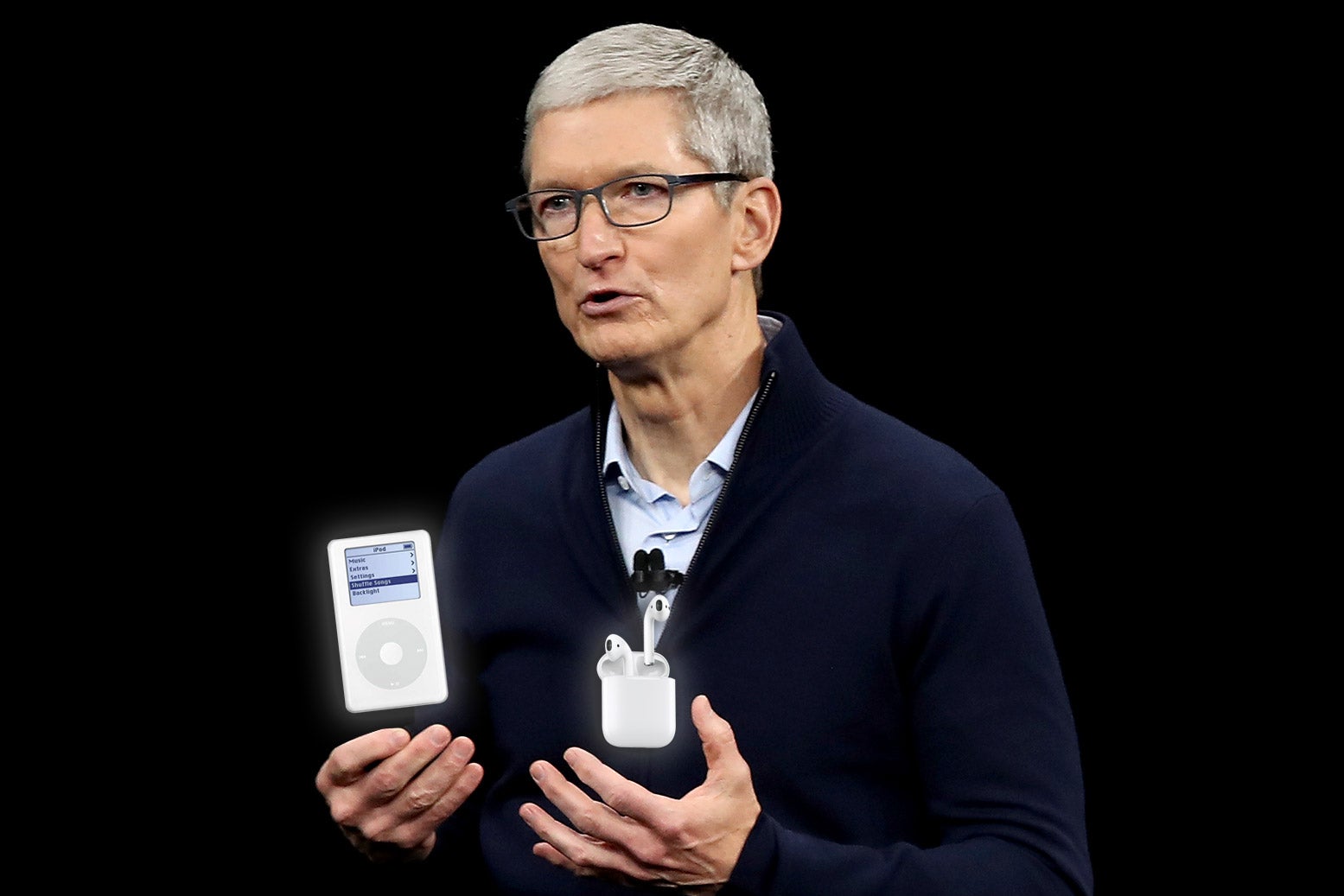In Apple’s earnings call Tuesday afternoon, Tim Cook talked at length about the success of the iPhone, the company’s double-digit growth across various product categories, and its booming services business. But one of Apple’s more interesting success stories comes from its wearable business, which got a shout out as a driver of Apple’s “continued strong sales.”
Apple lumps the Apple Watch, AirPods, and Beats headphones into its “Wearables” division, part of something it calls its “Other Products” category. That category continued to see strong performance, beating analyst estimates and earning the company $3.74 billion in revenue. Over the past fiscal year, the wearables portion of the category has grown 60 percent year-over-year and amassed more than $10 billion in revenue, which Apple CEO Tim Cook called “a remarkable accomplishment.” The Apple Watch is a big part of that success, with growth in the mid-40 percent range, and last quarter, the Wearables segment reached the size of a Fortune 300 company. But Apple’s smaller, cheaper AirPods are also proving to be a commercial success (even if they can be awkward). AirPods’ popularity, in fact, led Cook to comment on their similarity to a previous Apple hit.
“We are thrilled to see so many customers enjoying AirPods,” Cook said on the call with investors and press. “It reminds me of the early days of iPod, when I started noticing white earbuds everywhere I went.”
In the past year, as I’ve traveled through states such as California, Texas, and Kansas, the white, cordless AirPods seem to be in more and more ears, much the way white earbuds proliferated after the debut of the iPod. The AirPods seemed particularly notable among travelers at airports, but I’ve seen them on runners, cyclists, business people, and coffee shop goers. In May, Cook called them a “runaway hit,” and they’ve been so popular that Apple has barely managed to keep them properly stocked on store shelves. In Tuesday’s call, Cook said the company is selling them as fast as it can make them.
The similarity between AirPods, launched a year and a half ago, and iPods runs deeper, though. When the iPods burst onto the scene, music pirating was a popular alternative to paying for expensive CDs at a time when there were few legal, convenient ways to get digital music files. Apple’s iTunes software changed that. While some still opted to bittorrent music files, iTunes proved a convenient way for iPod owners to get music legally, paying for full albums or only for individual songs they wanted—a then-novel concept. iTunes proved to be a profit machine for Apple and helped pave the way for other related Apple services like the App Store.
AirPods may do the same for Apple Music. While AirPods aren’t Apple Music-exclusive like Apple’s HomePod smart speaker, they do integrate nicely with Apple’s streaming music offering—you can use Siri voice commands to play music from your Apple Music library as well as different Apple Music playlists, genres, and radio stations. The AirPods may act like a gateway drug to Apple’s music offering, particularly among serious music fans.
Apple is reportedly working on a second-generation version of AirPods set to debut later this year with a faster wireless chip, better water resistance, and Hey Siri for completely hands-free voice control. The timing is right: Some AirPod owners are already buying new pairs after a year and a half of heavy use. While initial reviews were mixed, follow-ups continue to posit that AirPods are some of the best wireless headphones available. Although technically “just” an accessory to an iPhone or iOS device, AirPods have emerged as one of Apple’s iconic new products. The iPod paved the way for digital music listening with its signature white earbuds, and the iPhone carried on that tradition. Tim Cook seems to be suggesting that AirPods might be the next chapter in that story—and, like their predecessors, will help Apple continue to reap new revenue records.
